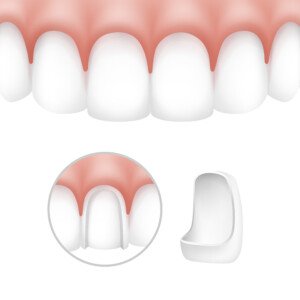 What is Composite Bonding?
What is Composite Bonding?
Composite bonding, also known as composite veneers, is a cosmetic dental procedure that involves applying a tooth-colored resin material to the teeth to improve their appearance. It is a popular option for those looking to enhance their smile, fix minor imperfections, or repair damaged teeth.
How Composite Bonding Works
The procedure starts with the dentist preparing the teeth by lightly etching the surface to create a rough texture. This helps the composite resin adhere better to the teeth. The dentist then applies the resin in layers, shaping and sculpting it to achieve the desired result. Once the desired shape is achieved, a special light is used to harden the resin. Finally, the dentist polishes the bonded teeth to give them a natural and seamless look.
Composite Bonding in Turkey: Price Offers
Turkey is known for its high-quality dental treatments at affordable prices, and composite bonding is no exception. The cost of composite bonding in Turkey is generally lower compared to many other countries. The exact price can vary depending on factors such as the number of teeth being treated, the complexity of the case, and the location of the dental clinic.
Check out our prices at Atlas Dental. We offer affordable dental treatments at unbeatable rates, ensuring that you receive top-quality care.
What is the Process for Composite Veneers in Turkey?
The process for composite veneers in Turkey typically involves the following steps:
- Consultation: The first step is to schedule a consultation with a dental professional. During this appointment, the dentist will assess your oral health, discuss your goals, and determine if you are a suitable candidate for composite bonding. We provide free consultation services for all our patients.
- Preparation: If you decide to proceed with the treatment, the dentist will prepare your teeth by cleaning them and removing any existing dental restorations or decay.
- Bonding: The dentist will then apply the composite resin to your teeth, carefully shaping and sculpting it to achieve the desired result. Multiple layers of resin may be applied, with each layer being hardened using a special light.
- Polishing: Once the resin has hardened, the dentist will polish the bonded teeth to give them a natural and smooth appearance.
Techniques Used in Turkey for Composite Bonding
In Turkey, dental professionals use the latest techniques and materials for composite bonding to ensure optimal results. Some common techniques used include:
- Layering Technique: This involves applying multiple layers of composite resin to create a natural and lifelike appearance.
- Shape and Contouring: The dentist carefully shapes and contours the resin to match the surrounding teeth and create a seamless blend.
- Color Matching: Dental professionals in Turkey have expertise in color matching the composite resin to the patient’s natural teeth, ensuring a natural-looking result.
Benefits of Visiting Turkey for Composite Bonding Treatment
There are several benefits to visiting Turkey for composite bonding treatment:
- Affordable Prices: Turkey offers competitive prices for dental treatments, making it a cost-effective option for composite bonding.
- High-Quality Care: Turkish dental clinics are known for their state-of-the-art facilities and highly skilled dentists who provide quality care.
- Experienced Dentists: Many dentists in Turkey have extensive experience in cosmetic dentistry, including composite bonding.
- Beautiful Destination: Turkey is a popular tourist destination, allowing patients to combine their dental treatment with a relaxing vacation.
Disadvantages of Teeth Bonding in Turkey
While there are numerous advantages to getting composite bonding in Turkey, it is important to consider some potential disadvantages:
- Language Barrier: Communication may be a challenge if you do not speak the local language. However, many dental professionals in Turkey are fluent in English.
- Travel Expenses: Traveling to Turkey for dental treatment incurs additional expenses such as airfare and accommodation.
At Atlas Dental we have English-speaking dentists as well as a full-time translator to assist you with all your needs and make sure your treatment journey is as smooth as possible.
Composite Bonding in Turkey Reviews
Patients who have undergone composite bonding in Turkey have generally been satisfied with the results. Many praise the affordability, quality of care, and the natural-looking outcome of the treatment. It is advisable to research and read reviews of dental clinics and dentists in Turkey before making a decision. Check out our testimonials here.
Alternatives to Composite Bonding in Turkey
There are alternative treatments to composite bonding that you can consider:
- Laminate Veneers: These are thin porcelain shells that are bonded to the front surface of the teeth, providing a durable and long-lasting solution for smile enhancement.
- Dental Crowns: Crowns are tooth-shaped caps that cover the entire tooth, offering both cosmetic improvement and structural support.
Types of Dental Veneers in Turkey
In addition to composite bonding, Turkey offers various types of dental veneers: Zirconia vs Porcelin
- Porcelain Veneers: These are custom-made, thin shells of porcelain that are bonded to the front surface of the teeth, providing a natural and long-lasting result.
- Zirconia Veneers: These veneers are made from a strong and durable material called zirconia, known for its natural appearance and resistance to chipping or cracking.
In conclusion, composite bonding in Turkey offers an affordable and effective solution for those looking to improve their smile. With skilled dentists, modern techniques, and competitive prices, Turkey has become a popular destination for dental tourism.
FAQs About Composite Bonding in Turkey
Is composite bonding painful?
Dental bonding typically doesn’t hurt as the dentist won’t operate close to the pain-sensing nerve inside your tooth. For the most part, dental bonding doesn’t even require anaesthesia. A dental bonding process may cause transient sensitivity in certain individuals.
How long does composite bonding last?
Composite bonding can endure for 4 to 8 years, assuming you have no problems biting through tough foods or accidents. The location of the tooth, the degree of dental damage, eating patterns, and oral hygiene condition are some of the variables that affect how long the composite lasts.
Can composite bonding fix crooked teeth?
No, severly crooked teeth cannot be fixed with composite bonding. Composite bonding should only be used to correct minor alignment problems for optimal results.
Is composite bonding reversible?
Composite bonding is typically reversible as it doesn’t require tooth structure removal. Since the bonding is placed on the tooth’s surface, the natural teeth underlying the bonding are unharmed. It is usually easy to have your adhesion changed or removed without damaging your teeth if that is something you ever choose to do.
Can I eat normally after composite bonding?
Unlike other procedures that need several sessions, the procedure changes your smile in just one consultation. You will be pain-free to resume your regular eating routine a few hours after the procedure is completed and the tooth has rested.
Is bonding bad for your teeth?
Composite bonding is regarded as a non-invasive, safe dental technique that doesn’t damage your teeth in any way.
What is dental bonding made of?
The composite bonding material is made up of a tooth-coloured resin that is both long-lasting and aesthetically beautiful. This substance is carefully placed and attached to its surface to improve the tooth’s appearance and functionality.


